Books on consciousness
A list of books relating to the hard problem of consciousness. Regularly updated cos I keep finding new stuff all the time.
A list of books relating to the hard problem of consciousness. Regularly updated cos I keep finding new stuff all the time.
2014
 Barry Dainton
Barry Dainton
Self
(Penguin 2014)
Barry Dainton takes us through the nature of self and its relation to the rest of reality. Starting his journey with Descartes’ claim that we are non-physical beings and Locke’s view that a person is self-conscious matter, Dainton explores how today’s rapid movement of people, and information affects our understanding of self. See Penguin | Amazon | Google
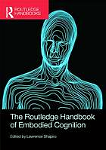 Lawrence Shapiro (ed.)
Lawrence Shapiro (ed.)
The Routledge Handbook of Embodied Cognition
(Routledge 2014)
Embodied cognition is one of the foremost areas of research in philosophy of mind, philosophy of psychology and cognitive science. This volume of over thirty chapters by a team of international contributors is an outstanding guide to the key debates in this area and essential reading for any student of philosophy of mind and cognitive science. See Routledge | Amazon | Google
 A. Lavazza & H. Robinson (eds.)
A. Lavazza & H. Robinson (eds.)
Contemporary Dualism: A Defense
(Routledge 2014)
Ontological materialism has become the orthodox view in contemporary philosophy of mind. This book provides a variety of defenses of mind-body dualism, and shows that a thoroughgoing ontological materialism cannot be sustained. At the very least, ontological dualism constitutes a philosophically respectable alternative. See Routledge | Amazon | Google
 Richard Brown (ed.)
Richard Brown (ed.)
Consciousness Inside and Out: Phenomenology, Neuroscience, and the Nature of Experience
(Springer 2014)
This volume is the product of the third online consciousness conference. Chapters range over epistemological issues in perception, neuroscience and the philosophy of mind, black and white vision, pain, auditory, olfactory and multi-modal experiences, higher-order theories of consciousness, and synesthesia, among many others. See Springer | Amazon | Google
 Andrea Eugenio Cavanna & Andrea Nani
Andrea Eugenio Cavanna & Andrea Nani
Consciousness: Theories in Neuroscience and Philosophy of Mind
(Springer 2014)
Reviews some of the most important scientific and philosophical accounts of mind and consciousness. These are presented through biographical sketches of the most influential thinkers across philosophy, psychology and neuroscience. The first part is devoted to philosophers of mind and the second to neuroscientists and experimental psychologists. See Springer | Amazon | Google
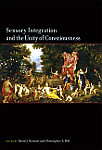 David Bennett & Christopher Hill (eds.)
David Bennett & Christopher Hill (eds.)
Sensory Integration and the Unity of Consciousness
(MIT 2014)
Recent philosophy and science has challenged traditional conceptions of the sensory systems as operating in isolation. Contributors to this volume consider the ways in which perception may be “multisensory,” explore the unity of consciousness, the degree to which conscious experiences are unified, and the relationship between unified consciousness and the self. See MIT | Amazon | Google
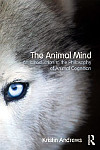 Kristin Andrews
Kristin Andrews
The Animal Mind: An Introduction to the Philosophy of Animal Cognition
(Routledge 2014)
The study of animal cognition raises profound questions in the philosophy of mind. Aristotle argued that humans are the only animal to laugh but rats have now also been shown to laugh and dogs can respond to over two hundred human words. Andrews introduces the essential topics, problems and debates as they cut across animal cognition and philosophy of mind. See Routledge | Amazon | Google
 Mark Sprevak & Jasper Kallestrup (eds.)
Mark Sprevak & Jasper Kallestrup (eds.)
New Waves in Philosophy of Mind
(Palgrave Macmillan 2014)
The philosophy of mind is one of the core disciplines in the subject. The questions it deals with are profound, vexed and intriguing. This volume of fifteen original, cutting-edge essays gives young researchers a chance to stir up new ideas. The topics covered include the nature of consciousness, cognition, and action. See Palgrave | Amazon | Google
 Lambert Wieising
Lambert Wieising
The Philosophy of Perception: Phenomenology and Image Theory
(Bloomsbury 2014, trans. Nancy Ann Roth)
Wiesing starts by taking perception to be real and asks what this means for a subject. The question of how perception is possible is displaced by questions about what perception obliges us to be and do. He argues that perception requires us to be embodied, visible, and to continually participate in the public and physical world we perceive. See Bloomsbury | Amazon | Google | Nico Orlandi review
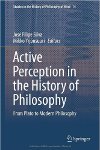 J. F. Silva & M. Yrjönsuuri (eds.)
J. F. Silva & M. Yrjönsuuri (eds.)
Active Perception in the History of Philosophy: From Plato to Modern Philosophy
(Springer 2014)
Perception has often been conceived as a process in which the passive aspects were stressed and the active ones overlooked. Recent research has challenged this conception. Although there are ancient roots to the view that perception is fundamentally active, the history remains largely unexplored. This work traces that history from Plato to modern philosophy. See Springer | Amazon | Google
 Nico Orlandi
Nico Orlandi
The Innocent Eye: Why Vision Is Not a Cognitive Process
(Oxford 2014)
Does the world look the way it does because we construct it to do so or because that is how it is? Orlandi defends a position in the second tradition while acknowledging the insights of the first. He argues that visual percepts are representational states although the states and structures that precede the production of percepts are not representations. See Oxford | Amazon | Google
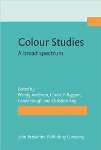 Anderson, Biggam, Hough & Kay (eds.)
Anderson, Biggam, Hough & Kay (eds.)
Colour Studies: A Broad Spectrum
(John Benjamins 2014)
This volume arises from the Progress in Colour Studies (PICS12) conference at Glasgow. The opening chapter stems from the keynote talk on prehistoric colour semantics by Carole P. Biggam. The remaining chapters are grouped into three sections: colour and linguistics; colour categorization, naming and preference; and colour and the world. See John Benjamins | Amazon | Google
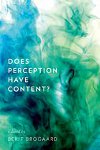 Berit Brogaard (ed.)
Berit Brogaard (ed.)
Does Perception Have Content?
(Oxford 2014)
What does it mean to say that perception has content? Is there more than one kind of content? Does perceptual content derive from the content of beliefs or judgments? Should it be understood in terms of accuracy conditions? Is naive realism compatible with perceptual content? The contributors to this volume address these and similar questions. See Oxford | Amazon | Google
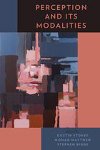 Stokes, Matthen & Biggs (eds.)
Stokes, Matthen & Biggs (eds.)
Perception and Its Modalities
(Oxford 2014)
This volume is about the many ways we perceive. In nineteen new essays, philosophers and cognitive scientists explore the individual senses, how and what they tell us about the world, and how they interrelate. Many of the essays engage with the idea that to understand perception properly we need to see that the senses work together. See Oxford | Amazon | Google
 Anna Marmodoro
Anna Marmodoro
Aristotle on Perceiving Objects
(Oxford 2014)
What is the structure of perceptual experience? Why do we perceive objects and not disjoint arrays of properties? By which senses do we perceive objects? This book reconstructs the six metaphysical models Aristotle offered to address such questions, focusing on their metaphysical underpinning in his theory of causal powers. See Oxford | Amazon | Google | Christopher Frey review
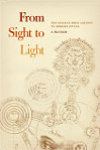 A. Mark Smith
A. Mark Smith
From Sight to Light: The Passage from Ancient to Modern Optics
(U. Chicago Press 2014)
In Greek antiquity, the science of optics was aimed primarily at explaining sight and why things look as they do. By the 17th century, the focus had shifted to light: its properties and behaviors like reflection, refraction and diffraction. This “Keplerian turn” is the subject of this fascinating and pioneering study. See U. Chicago Press | Amazon | Google | Christopher Dainty review (pdf)
 Eric C. Banks
Eric C. Banks
The Realistic Empiricism of Mach, James, and Russell: Neutral Monism Reconceived
(Cambridge 2014)
In the early twentieth century, Ernst Mach, William James and Bertrand Russell founded a movement known as neutral monism: the view that minds and physical objects are constructed out of elements which are neither mental nor physical, but neutral between the two. Banks discusses this important movement in this book. See Cambridge | Amazon | Google | Carrie Figdor audio interview
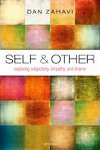 Dan Zahavi
Dan Zahavi
Self and Other: Exploring Subjectivity, Empathy, and Shame
(Oxford 2014)
Can you be a self on your own or only together with others? Is selfhood a built-in feature of experience or is it rather socially constructed? Zahavi argues that, while the most fundamental level of selfhood is neither socially constructed nor constitutively dependent upon others, there are dimensions of the self that are other-mediated. See Oxford | Amazon | Google
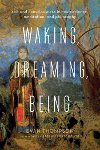 Evan Thompson
Evan Thompson
Waking, Dreaming, Being: Self and Consciousness in Neuroscience, Meditation, and Philosophy
(Columbia 2014)
Contemplative traditions say that we can learn to let go of the self, so that when we die we can witness its dissolution with equanimity. Evan Thompson combines the latest neuroscience research on sleep, dreaming, and meditation with Indian and Western philosophy of the mind to depict these transformations, casting new light on the self and its relation to the brain. See Columbia | Amazon | Google
 Josh Weisberg
Josh Weisberg
Consciousness
(Polity 2014)
Each of us, right now, is having a unique conscious experience. Nothing is more basic to our lives as thinking beings. But the ever-expanding reach of natural science suggests that everything in our world is ultimately physical. The challenge of fitting consciousness into our modern scientific worldview is among the most intriguing problems of our times. See Polity | Amazon | Google
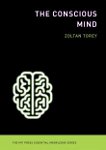 Zoltan Torey
Zoltan Torey
The Conscious Mind
(MIT 2014)
Torey proposes that once life began, consciousness had to emerge—because consciousness is the informational source of the brain’s behavioral response. It is not a newly-acquired quality, cosmic principle, circuitry arrangement or epiphenomenon, as others have argued, but an indispensable component of the living system’s manner of functioning. See MIT | Amazon | Google
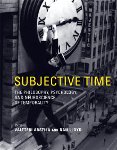 Valtteri Arstila & Dan Lloyd (eds.)
Valtteri Arstila & Dan Lloyd (eds.)
Subjective Time: The Philosophy, Psychology, and Neuroscience of Temporality
(MIT 2014)
Our awareness of time is a constant feature of conscious life. It structures and guides every aspect of behavior and cognition, distinguishing memory, perception, and anticipation. This volume brings together research on temporality from leading scholars in philosophy, psychology, and neuroscience, defining a new field of interdisciplinary research. See MIT | Amazon | Google
 John Campbell & Qassim Cassam
John Campbell & Qassim Cassam
Berkeley’s Puzzle: What Does Experience Teach Us?
(Oxford 2014)
Our conception and knowledge of mind-independent things seems to be based on sensory experience. But Berkeley argued that sensory experience can only provide us with the conception of mind-dependent things. In a lively debate, Campbell and Cassam propose very different solutions (‘relationalist’ and ‘representationalist’) to this puzzle. See Oxford | Amazon | Google | Christopher Frey review
 Stanislas Dehaene
Stanislas Dehaene
Consciousness and the Brain: Deciphering How the Brain Codes Our Thoughts
(Viking 2014)
How does our brain generate a conscious thought? And why does so much of our knowledge remain unconscious? Thanks to clever experiments, scientists are closer to cracking this mystery than ever before. In this book, Dehaene describes the pioneering work of cognitive neuroscientists in understanding the brain events behind a conscious state. See Viking | Amazon | Google | BookLab review (podcast)
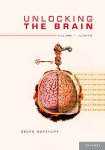 Georg Northoff
Georg Northoff
Unlocking the Brain, Volume 1: Coding
(Oxford 2014)
Northoff argues that the brain must code the relationship between its resting state activity and stimulus-induced activity in order to enable and predispose mental states and consciousness. He presents a unique and novel picture of the brain that will have a major and lasting impact on neuroscience, psychiatry, and related fields. See Oxford | Amazon | Google
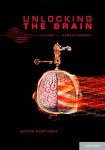 Georg Northoff
Georg Northoff
Unlocking the Brain, Volume 2: Consciousness
(Oxford 2014)
In this volume, Northoff hypothesizes about the relationship between particular neuronal mechanisms and the various phenomenal features of consciousness. He puts consciousness in the context of the resting state of the brain thereby delivering a new point of view to the debate that permits very interesting insights into the nature of consciousness. See Oxford | Amazon | Google
 Ted Honderich
Ted Honderich
Actual Consciousness
(Oxford 2014)
What is it for you to be conscious? There is no agreement whatever in philosophy or science: it has remained a hard problem, a mystery. Honderich sets out to supersede dualisms, objective physicalisms, abstract functionalism, general externalisms, and other positions in the debate, with his own theory of Actualism. See Oxford | Amazon | Google
 Christopher Peacocke
Christopher Peacocke
The Mirror of the World: Subjects, Consciousness, and Self-Consciousness
(Oxford 2014)
Peacocke develops a new theory of subjects of consciousness and the nature of first-person representation, distinct from previous theories, under which subjects were regarded either as constructs from mental events, fundamentally embodied, or Cartesian egos. Relating his position to recent philosophy of mind, he distinguishes three varieties of self-consciousness. See Oxford | Amazon | Google

Self
(Penguin 2014)
Barry Dainton takes us through the nature of self and its relation to the rest of reality. Starting his journey with Descartes’ claim that we are non-physical beings and Locke’s view that a person is self-conscious matter, Dainton explores how today’s rapid movement of people, and information affects our understanding of self. See Penguin | Amazon | Google

The Routledge Handbook of Embodied Cognition
(Routledge 2014)
Embodied cognition is one of the foremost areas of research in philosophy of mind, philosophy of psychology and cognitive science. This volume of over thirty chapters by a team of international contributors is an outstanding guide to the key debates in this area and essential reading for any student of philosophy of mind and cognitive science. See Routledge | Amazon | Google

Contemporary Dualism: A Defense
(Routledge 2014)
Ontological materialism has become the orthodox view in contemporary philosophy of mind. This book provides a variety of defenses of mind-body dualism, and shows that a thoroughgoing ontological materialism cannot be sustained. At the very least, ontological dualism constitutes a philosophically respectable alternative. See Routledge | Amazon | Google

Consciousness Inside and Out: Phenomenology, Neuroscience, and the Nature of Experience
(Springer 2014)
This volume is the product of the third online consciousness conference. Chapters range over epistemological issues in perception, neuroscience and the philosophy of mind, black and white vision, pain, auditory, olfactory and multi-modal experiences, higher-order theories of consciousness, and synesthesia, among many others. See Springer | Amazon | Google

Consciousness: Theories in Neuroscience and Philosophy of Mind
(Springer 2014)
Reviews some of the most important scientific and philosophical accounts of mind and consciousness. These are presented through biographical sketches of the most influential thinkers across philosophy, psychology and neuroscience. The first part is devoted to philosophers of mind and the second to neuroscientists and experimental psychologists. See Springer | Amazon | Google

Sensory Integration and the Unity of Consciousness
(MIT 2014)
Recent philosophy and science has challenged traditional conceptions of the sensory systems as operating in isolation. Contributors to this volume consider the ways in which perception may be “multisensory,” explore the unity of consciousness, the degree to which conscious experiences are unified, and the relationship between unified consciousness and the self. See MIT | Amazon | Google

The Animal Mind: An Introduction to the Philosophy of Animal Cognition
(Routledge 2014)
The study of animal cognition raises profound questions in the philosophy of mind. Aristotle argued that humans are the only animal to laugh but rats have now also been shown to laugh and dogs can respond to over two hundred human words. Andrews introduces the essential topics, problems and debates as they cut across animal cognition and philosophy of mind. See Routledge | Amazon | Google

New Waves in Philosophy of Mind
(Palgrave Macmillan 2014)
The philosophy of mind is one of the core disciplines in the subject. The questions it deals with are profound, vexed and intriguing. This volume of fifteen original, cutting-edge essays gives young researchers a chance to stir up new ideas. The topics covered include the nature of consciousness, cognition, and action. See Palgrave | Amazon | Google

The Philosophy of Perception: Phenomenology and Image Theory
(Bloomsbury 2014, trans. Nancy Ann Roth)
Wiesing starts by taking perception to be real and asks what this means for a subject. The question of how perception is possible is displaced by questions about what perception obliges us to be and do. He argues that perception requires us to be embodied, visible, and to continually participate in the public and physical world we perceive. See Bloomsbury | Amazon | Google | Nico Orlandi review

Active Perception in the History of Philosophy: From Plato to Modern Philosophy
(Springer 2014)
Perception has often been conceived as a process in which the passive aspects were stressed and the active ones overlooked. Recent research has challenged this conception. Although there are ancient roots to the view that perception is fundamentally active, the history remains largely unexplored. This work traces that history from Plato to modern philosophy. See Springer | Amazon | Google

The Innocent Eye: Why Vision Is Not a Cognitive Process
(Oxford 2014)
Does the world look the way it does because we construct it to do so or because that is how it is? Orlandi defends a position in the second tradition while acknowledging the insights of the first. He argues that visual percepts are representational states although the states and structures that precede the production of percepts are not representations. See Oxford | Amazon | Google

Colour Studies: A Broad Spectrum
(John Benjamins 2014)
This volume arises from the Progress in Colour Studies (PICS12) conference at Glasgow. The opening chapter stems from the keynote talk on prehistoric colour semantics by Carole P. Biggam. The remaining chapters are grouped into three sections: colour and linguistics; colour categorization, naming and preference; and colour and the world. See John Benjamins | Amazon | Google

Does Perception Have Content?
(Oxford 2014)
What does it mean to say that perception has content? Is there more than one kind of content? Does perceptual content derive from the content of beliefs or judgments? Should it be understood in terms of accuracy conditions? Is naive realism compatible with perceptual content? The contributors to this volume address these and similar questions. See Oxford | Amazon | Google

Perception and Its Modalities
(Oxford 2014)
This volume is about the many ways we perceive. In nineteen new essays, philosophers and cognitive scientists explore the individual senses, how and what they tell us about the world, and how they interrelate. Many of the essays engage with the idea that to understand perception properly we need to see that the senses work together. See Oxford | Amazon | Google

Aristotle on Perceiving Objects
(Oxford 2014)
What is the structure of perceptual experience? Why do we perceive objects and not disjoint arrays of properties? By which senses do we perceive objects? This book reconstructs the six metaphysical models Aristotle offered to address such questions, focusing on their metaphysical underpinning in his theory of causal powers. See Oxford | Amazon | Google | Christopher Frey review

From Sight to Light: The Passage from Ancient to Modern Optics
(U. Chicago Press 2014)
In Greek antiquity, the science of optics was aimed primarily at explaining sight and why things look as they do. By the 17th century, the focus had shifted to light: its properties and behaviors like reflection, refraction and diffraction. This “Keplerian turn” is the subject of this fascinating and pioneering study. See U. Chicago Press | Amazon | Google | Christopher Dainty review (pdf)

The Realistic Empiricism of Mach, James, and Russell: Neutral Monism Reconceived
(Cambridge 2014)

In the early twentieth century, Ernst Mach, William James and Bertrand Russell founded a movement known as neutral monism: the view that minds and physical objects are constructed out of elements which are neither mental nor physical, but neutral between the two. Banks discusses this important movement in this book. See Cambridge | Amazon | Google | Carrie Figdor audio interview

Self and Other: Exploring Subjectivity, Empathy, and Shame
(Oxford 2014)
Can you be a self on your own or only together with others? Is selfhood a built-in feature of experience or is it rather socially constructed? Zahavi argues that, while the most fundamental level of selfhood is neither socially constructed nor constitutively dependent upon others, there are dimensions of the self that are other-mediated. See Oxford | Amazon | Google

Waking, Dreaming, Being: Self and Consciousness in Neuroscience, Meditation, and Philosophy
(Columbia 2014)
Contemplative traditions say that we can learn to let go of the self, so that when we die we can witness its dissolution with equanimity. Evan Thompson combines the latest neuroscience research on sleep, dreaming, and meditation with Indian and Western philosophy of the mind to depict these transformations, casting new light on the self and its relation to the brain. See Columbia | Amazon | Google

Consciousness
(Polity 2014)

Each of us, right now, is having a unique conscious experience. Nothing is more basic to our lives as thinking beings. But the ever-expanding reach of natural science suggests that everything in our world is ultimately physical. The challenge of fitting consciousness into our modern scientific worldview is among the most intriguing problems of our times. See Polity | Amazon | Google

The Conscious Mind
(MIT 2014)
Torey proposes that once life began, consciousness had to emerge—because consciousness is the informational source of the brain’s behavioral response. It is not a newly-acquired quality, cosmic principle, circuitry arrangement or epiphenomenon, as others have argued, but an indispensable component of the living system’s manner of functioning. See MIT | Amazon | Google

Subjective Time: The Philosophy, Psychology, and Neuroscience of Temporality
(MIT 2014)

Our awareness of time is a constant feature of conscious life. It structures and guides every aspect of behavior and cognition, distinguishing memory, perception, and anticipation. This volume brings together research on temporality from leading scholars in philosophy, psychology, and neuroscience, defining a new field of interdisciplinary research. See MIT | Amazon | Google

Berkeley’s Puzzle: What Does Experience Teach Us?
(Oxford 2014)
Our conception and knowledge of mind-independent things seems to be based on sensory experience. But Berkeley argued that sensory experience can only provide us with the conception of mind-dependent things. In a lively debate, Campbell and Cassam propose very different solutions (‘relationalist’ and ‘representationalist’) to this puzzle. See Oxford | Amazon | Google | Christopher Frey review

Consciousness and the Brain: Deciphering How the Brain Codes Our Thoughts
(Viking 2014)
How does our brain generate a conscious thought? And why does so much of our knowledge remain unconscious? Thanks to clever experiments, scientists are closer to cracking this mystery than ever before. In this book, Dehaene describes the pioneering work of cognitive neuroscientists in understanding the brain events behind a conscious state. See Viking | Amazon | Google | BookLab review (podcast)

Unlocking the Brain, Volume 1: Coding
(Oxford 2014)
Northoff argues that the brain must code the relationship between its resting state activity and stimulus-induced activity in order to enable and predispose mental states and consciousness. He presents a unique and novel picture of the brain that will have a major and lasting impact on neuroscience, psychiatry, and related fields. See Oxford | Amazon | Google

Unlocking the Brain, Volume 2: Consciousness
(Oxford 2014)
In this volume, Northoff hypothesizes about the relationship between particular neuronal mechanisms and the various phenomenal features of consciousness. He puts consciousness in the context of the resting state of the brain thereby delivering a new point of view to the debate that permits very interesting insights into the nature of consciousness. See Oxford | Amazon | Google

Actual Consciousness
(Oxford 2014)

What is it for you to be conscious? There is no agreement whatever in philosophy or science: it has remained a hard problem, a mystery. Honderich sets out to supersede dualisms, objective physicalisms, abstract functionalism, general externalisms, and other positions in the debate, with his own theory of Actualism. See Oxford | Amazon | Google

The Mirror of the World: Subjects, Consciousness, and Self-Consciousness
(Oxford 2014)
Peacocke develops a new theory of subjects of consciousness and the nature of first-person representation, distinct from previous theories, under which subjects were regarded either as constructs from mental events, fundamentally embodied, or Cartesian egos. Relating his position to recent philosophy of mind, he distinguishes three varieties of self-consciousness. See Oxford | Amazon | Google
Menu
 What’s a logical paradox?
What’s a logical paradox? Achilles & the tortoise
Achilles & the tortoise The surprise exam
The surprise exam Newcomb’s problem
Newcomb’s problem Newcomb’s problem (sassy version)
Newcomb’s problem (sassy version) Seeing and being
Seeing and being Logic test!
Logic test! Philosophers say the strangest things
Philosophers say the strangest things Favourite puzzles
Favourite puzzles Books on consciousness
Books on consciousness Philosophy videos
Philosophy videos Phinteresting
Phinteresting Philosopher biographies
Philosopher biographies Philosopher birthdays
Philosopher birthdays Draft
Draftbarang 2009-2024  wayback machine
wayback machine
 wayback machine
wayback machine